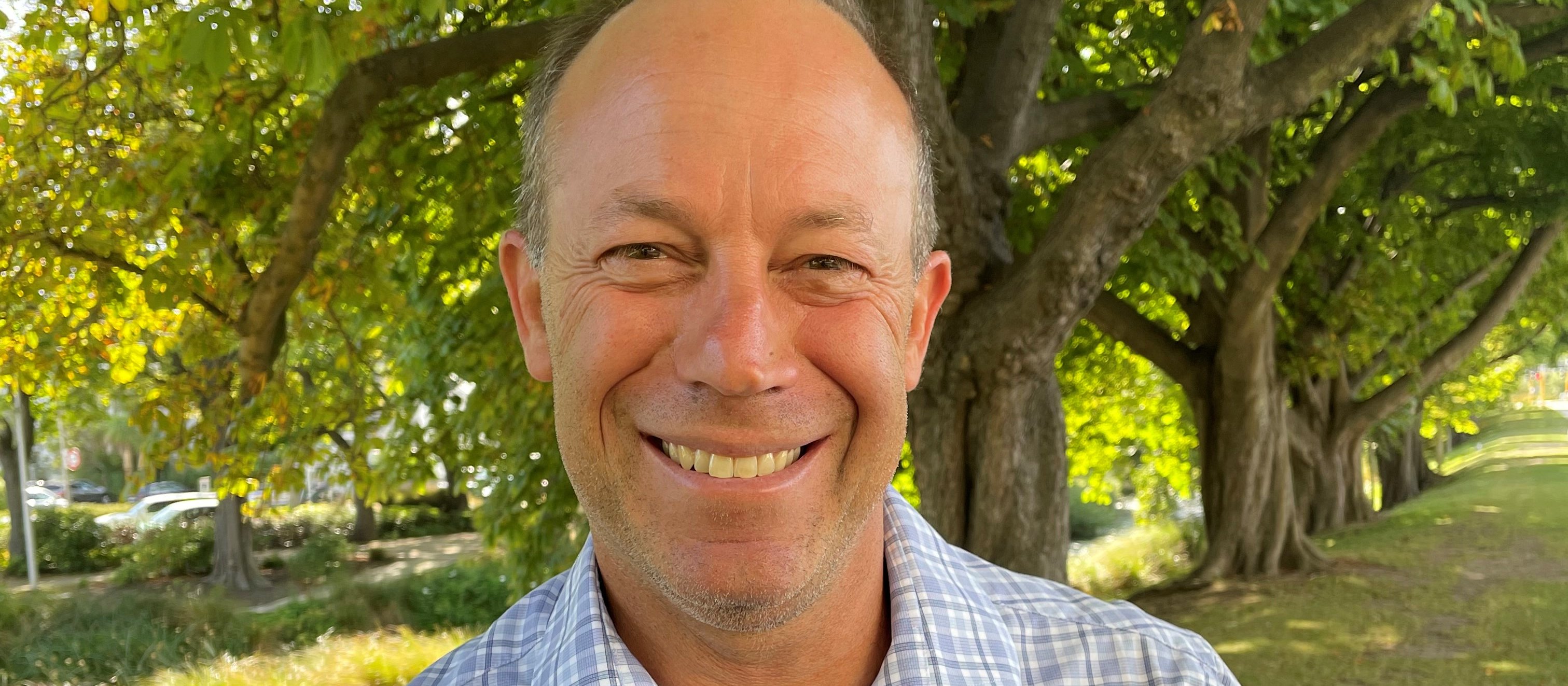Respiratory physician Lutz Beckert considers chronic obstructive pulmonary disease management, including the prevention of COPD, the importance of smoking cessation and pulmonary rehabilitation, and the lifesaving potential of addressing treatable traits. He also discusses the logic of inhaler therapy, moving from single therapy to dual and triple therapy when indicated, as well as other aspects of management
Group therapy on Zoom ‘offers promise’ for primary care
Group therapy on Zoom ‘offers promise’ for primary care

“There is a certain camaraderie patients benefit from, in group therapy”
Group cognitive behavioural therapy on video call could be a feasible treatment option for primary care, a study says.
Overall improvements in mental health have been recorded three months after treatment with the group approach, and again six months after treatment, say researchers led by University of Otago, Christchurch, senior lecturer and psychiatrist Ben Beaglehole.
The study covers brief group transdiagnostic cognitive behavioural therapy (TCBT) provided to 22 patients with depression or anxiety diagnoses, and is reported in the 17 February edition of the New Zealand Medical Journal.
Dr Beaglehole, clinical head at the Anxiety Disorder Service at Christchurch’s Hillmorton Hospital, says the feasibility study offers promise for the treatment in primary care, but further research is required to confirm efficacy.
Many patients who experience symptoms of depression or anxiety experience multiple disorders, Dr Beaglehole says, and a transdiagnostic approach could greatly improve their experience of cognitive behavioural therapy (CBT).
In Aotearoa New Zealand, standard treatment for anxiety and depression consists of psychological interventions and medications; most in an individual session, says the research team’s paper
But as anxiety and depression are common and consist of many different specific diagnoses, a transdiagnostic approach may be more effective and efficient, Dr Beaglehole says.
“There is a certain camaraderie patients benefit from, in group therapy,” and patients seek comfort in not being alone in their experiences, he says.
While this initial feasibility study does not rule out the possibility that patients won’t need different types of therapy; Dr Beaglehole says it’s likely a group session will be more efficient than individual CBT for each patient.
He also suggests finding a group of patients with the exact same depression or anxiety diagnosis can sometimes pose a challenge, particularly in rural areas, so transdiagnostic CBT will offer a more practical solution.
Initially planning to conduct a feasibility study in a face-to-face setting, the researchers adapted the therapy to Zoom in response to the COVID-19 pandemic lockdown in 2020.
Participants were eligible to take part if their primary care clinician recommended brief psychological intervention for clinically diagnosed anxiety and/or depression.
Twenty-two patients volunteered to take part in four two-hour therapy sessions in three groups.
The paper suggests more research is needed to compare face-to-face sessions with Zoom sessions.
Dr Beaglehole says it was too small a study to compare cultural or ethnic factors, and the small number of Māori participants means any attempt at analysis runs the risk of identifying patients.
The lack of Māori participants suggests systemic factors influencing referral may be present, “or that our treatment intervention may not be appealing for Māori”, the researchers write.
Dr Beaglehole tells New Zealand Doctor Rata Aotearoa there is hope more research will be conducted in this area, but his team has paused the topic to prioritise other obligations.







![Barbara Fountain, editor of New Zealand Doctor Rata Aotearoa, and Paul Hutchison, GP and senior medical clinician at Tāmaki Health [Image: Simon Maude]](/sites/default/files/styles/thumbnail_cropped_100/public/2025-03/Barbara%20Fountain%2C%20editor%20of%20New%20Zealand%20Doctor%20Rata%20Aotearoa%2C%20and%20Paul%20Hutchison%2C%20GP%20and%20senior%20medical%20clinician%20at%20T%C4%81maki%20Health%20CR%20Simon%20Maude.jpg?itok=-HbQ1EYA)
![Lori Peters, NP and advanced health improvement practitioner at Mahitahi Hauora, and Jasper Nacilla, NP at The Terrace Medical Centre in Wellington [Image: Simon Maude]](/sites/default/files/styles/thumbnail_cropped_100/public/2025-03/2.%20Lori%20Peters%2C%20NP%20and%20advanced%20HIP%20at%20Mahitahi%20Hauora%2C%20and%20Jasper%20Nacilla%2C%20NP%20at%20The%20Terrace%20Medical%20Centre%20in%20Wellington%20CR%20Simon%20Maude.jpg?itok=sUfbsSF1)
![Ministry of Social Development health and disability coordinator Liz Williams, regional health advisors Mary Mojel and Larah Takarangi, and health and disability coordinators Rebecca Staunton and Myint Than Htut [Image: Simon Maude]](/sites/default/files/styles/thumbnail_cropped_100/public/2025-03/3.%20Ministry%20of%20Social%20Development%27s%20Liz%20Williams%2C%20Mary%20Mojel%2C%20Larah%20Takarangi%2C%20Rebecca%20Staunton%20and%20Myint%20Than%20Htut%20CR%20Simon%20Maude.jpg?itok=9ceOujzC)
![Locum GP Helen Fisher, with Te Kuiti Medical Centre NP Bridget Woodney [Image: Simon Maude]](/sites/default/files/styles/thumbnail_cropped_100/public/2025-03/4.%20Locum%20GP%20Helen%20Fisher%2C%20with%20Te%20Kuiti%20Medical%20Centre%20NP%20Bridget%20Woodney%20CR%20Simon%20Maude.jpg?itok=TJeODetm)
![Ruby Faulkner, GPEP2, with David Small, GPEP3 from The Doctors Greenmeadows in Napier [Image: Simon Maude]](/sites/default/files/styles/thumbnail_cropped_100/public/2025-03/5.%20Ruby%20Faulkner%2C%20GPEP2%2C%20with%20David%20Small%2C%20GPEP3%20from%20The%20Doctors%20Greenmeadows%20in%20Napier%20CR%20Simon%20Maude.jpg?itok=B0u4wsIs)
![Rochelle Langton and Libby Thomas, marketing advisors at the Medical Protection Society [Image: Simon Maude]](/sites/default/files/styles/thumbnail_cropped_100/public/2025-03/6.%20Rochelle%20Langton%20and%20Libby%20Thomas%2C%20marketing%20advisors%20at%20the%20Medical%20Protection%20Society%20CR%20Simon%20Maude.jpg?itok=r52_Cf74)
![Specialist GP Lucy Gibberd, medical advisor at MPS, and Zara Bolam, urgent-care specialist at The Nest Health Centre in Inglewood [Image: Simon Maude]](/sites/default/files/styles/thumbnail_cropped_100/public/2025-03/7.%20Specialist%20GP%20Lucy%20Gibberd%2C%20medical%20advisor%20at%20MPS%2C%20and%20Zara%20Bolam%2C%20urgent-care%20specialist%20at%20The%20Nest%20Health%20Centre%20in%20Inglewood%20CR%20Simon%20Maude.jpg?itok=z8eVoBU3)
![Olivia Blackmore and Trudee Sharp, NPs at Gore Health Centre, and Gaylene Hastie, NP at Queenstown Medical Centre [Image: Simon Maude]](/sites/default/files/styles/thumbnail_cropped_100/public/2025-03/8.%20Olivia%20Blackmore%20and%20Trudee%20Sharp%2C%20NPs%20at%20Gore%20Health%20Centre%2C%20and%20Gaylene%20Hastie%2C%20NP%20at%20Queenstown%20Medical%20Centre%20CR%20Simon%20Maude.jpg?itok=Z6u9d0XH)
![Mary Toloa, specialist GP at Porirua and Union Community Health Service in Wellington, Mara Coler, clinical pharmacist at Tū Ora Compass Health, and Bhavna Mistry, specialist GP at Porirua and Union Community Health Service [Image: Simon Maude]](/sites/default/files/styles/thumbnail_cropped_100/public/2025-03/9.%20Mary%20Toloa%2C%20Porirua%20and%20Union%20Community%20Health%20Service%20in%20Wellington%2C%20Mara%20Coler%2C%20T%C5%AB%20Ora%20Compass%20Health%2C%20and%20Bhavna%20Mistry%2C%20PUCHS%20CR%20Simon%20Maude.jpg?itok=kpChr0cc)